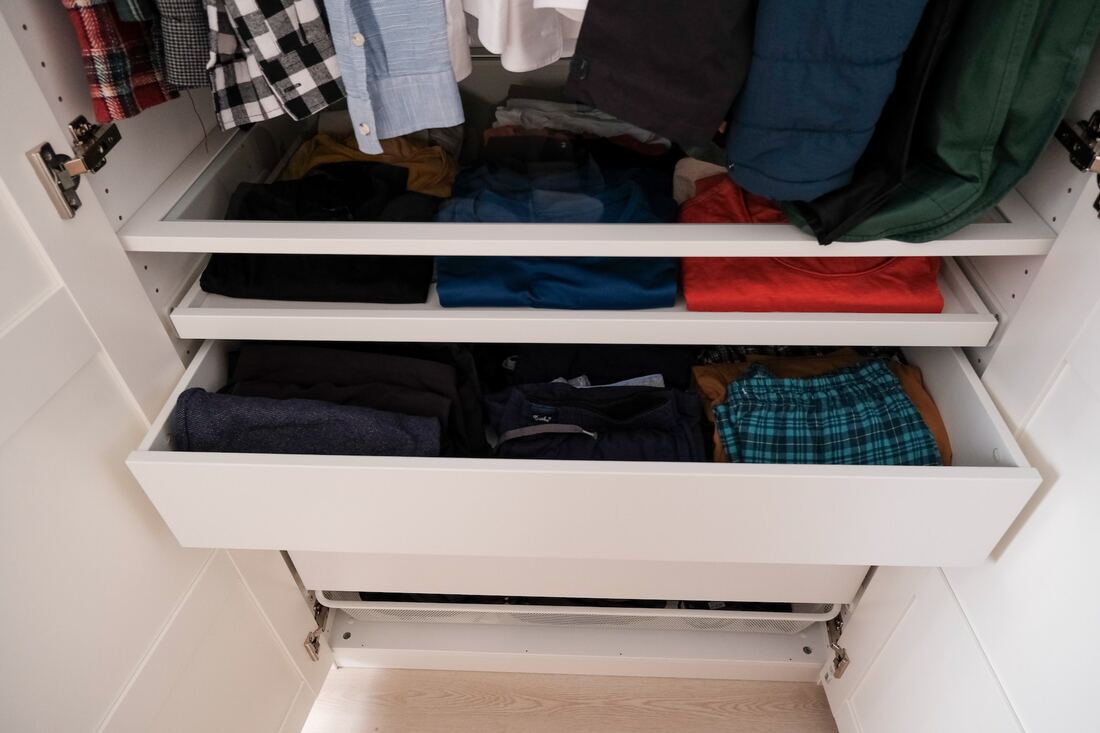|
Discover the perfect rental for your lifestyle – explore the advantages of urban vs. suburban rentals to find your ideal fit. In the ever-evolving landscape of modern living, the urban vs. suburban rentals choice has gained remarkable prominence. The urban pulse, resonating with cultural dynamism and swift accessibility, collides with the suburban allure of spacious tranquility and community charm. Navigating this decision requires a balanced understanding of the inherent merits and trade-offs. Whether you yearn for the energy of city lights or the serenity of tree-lined streets, the decision hinges on many factors. Join us as we delve into the contrasting realms of urban vibrance and suburban respite, guiding you through the pros and cons, considerations, and real-life stories illuminating the path to discovering your ideal dwelling. Pros and Cons of Urban Rentals Living in the heart of the city brings a kaleidoscope of opportunities. The dazzling array of cultural events, from concerts to art exhibitions, becomes an extension of your doorstep. Short commutes translate into more time for what truly matters. Networking in urban hubs propels personal and professional growth. However, the glitter comes at a price – a steep one. For example, your rent, like the skyline, often reaches towering heights. Amidst the bustling excitement, tranquility can be elusive. Green spaces are a rare oasis amidst the concrete. Urban living is a dance between the vibrant and the chaotic, where convenience and connectivity often outweigh solitude and space. As you navigate these lively streets, keep in mind the dynamic rhythm that urban rentals offer, making every day a symphony of choices. Pros and Cons of Suburban Rentals Venturing beyond the city limits unveils a world of tranquil possibilities. Suburban rentals embrace spaciousness and storage space and offer room to breathe and grow. The symphony here is one of birdsong, a harmony of calm that nurtures families and individuals seeking respite. The cost of living, like the horizon, tends to be less daunting, allowing financial room for pursuing passions. However, this retreat from the urban hustle can come with its own challenges. Longer commutes stretch the journey between work and home. Cultural epicenters may feel distant, and the pace of life might be more leisurely than lively. It's a trade-off between seclusion and convenience, where the expanse of personal space counterbalances the lack of urban thrills. As you explore these suburban landscapes, remember that every corner holds a promise of serenity, an escape from the urban bustle into a haven of tranquility. Factors to Consider When Making the Urban vs. Suburban Rentals Choice The ultimate decision depends on the unique constellation of your life. Family size, work demands, and personal interests form the cosmic web that guides your choice. If urban pulse syncs with your rhythm, proximity to work and cultural dynamism might win. Suburban quietude beckons if space, tranquility, and a slower pace resonate. Consider the stars in your sky – hobbies, social preferences, and the need for green spaces. For some, the allure of city lights takes precedence; for others, the pull of community charm prevails. Balance your cosmic elements, and remember, there's no one-size-fits-all answer. Your celestial blend shapes the narrative – a bespoke tale of urban allure or suburban sanctuary. Comparing Rental Costs The financial constellation plays a pivotal role in the urban vs. suburban rental choice. Urban living sparkles with opportunities yet often comes with a hefty price tag. Rent, utilities, and daily expenses form a constellation of their own, sometimes dazzling, sometimes daunting. The suburban sky tends to be kinder, with costs generally more grounded. Larger spaces and lower rents form the celestial equation. Consider how the financial stars align with your aspirations and resources. A balanced budget might shine brighter in the suburban night, while urban living could demand a sturdier financial launchpad. Balance the cosmic scales between affordability and ambition, and let the monetary stars guide your path to the right rental realm. Case Studies: Real People, Real Choices Let's peer into the stories of those who navigated this cosmic crossroads. Emily, an artist, embraced urban life for its creative pulse, shaping her inspirations. Mark, a father of two, sought suburban serenity, trading city lights for backyard constellations. Emily's canvas flourished amidst the city's vibrant hues, while Mark's children found playground galaxies within their suburban universe. Their different yet equally valid cosmic coordinates showcase how personal narratives shape rental choices. Whether chasing dreams beneath city constellations or cultivating family bonds in suburban galaxies, these tales underscore the individuality of this decision. The cosmic tapestry weaves unique threads, painting distinct portraits in the skies of urban and suburban living. Finding Your Ideal Rental: Tips and Resources
Navigating the diverse rental landscape demands more than just online searches and visits. Many rentals embrace the coziness of compact living spaces. As you embark on this journey, keep in mind that sometimes you might need to expand beyond the confines of your rental. If you find yourself in a situation where space becomes a precious commodity, it's crucial to prepare your items for storage. This is where must-have storage supplies for first-time renters come into play. You need to get the right materials, including packing essentials and containers, to ensure your belongings are well-prepped before they go into a storage unit. Renting a storage unit becomes a great option when you want to declutter without parting with cherished possessions. When pursuing the ideal rental, it's important to think creatively about how to make the most of your space, even beyond the walls of your home. In Conclusion In the grand tapestry of urban vs. suburban rentals, the key is finding the right fit for you. As you traverse the labyrinth of choices, remember that no cosmic map holds all the answers. Your lifestyle aspirations, practical needs, and personal preferences paint the canvas. Urban vivacity or suburban serenity? The choice shapes your daily narrative. From the city's vibrant rhythm to the serenity of suburban streets, every step in this journey adds a stroke to your unique story. So, explore the pros and cons, balance your budget, consider your cosmic priorities, and find your ideal rental. As you forge ahead, remember that amidst the sea of options, it's your voice that guides you, leading you to the destination that resonates most profoundly with the symphony of your life. Photos via: Pexels Pexels Pexels Pexels Check out our guide on a new trend in rental housing for millennials and Gen Z. Make your properties more appealing to the younger crowd! If you want to make the most of your rentals, keep up with the latest trends. So, let’s go over a new trend in rental housing for millennials and Gen Z. Flexibility for nomadic lifestyles Flexibility for nomadic lifestyles has become a crucial consideration for millennials and Gen Z when choosing housing. Remote work and a desire for adventure have led young people to seek short-term leases and co-living options. That allows them to explore different locations without being tied down to long-term commitments! As a result, this shift in lifestyle has naturally changed how people approach negotiating rent with a landlord. People are now more inclined to discuss flexible terms that align with their nomadic preferences, such as month-to-month agreements or the option to sublet the space while they travel. Landlords, too, have recognized the benefits of accommodating these preferences. As a result, they attract a broader pool of potential tenants and fostering a positive landlord-tenant relationship! Co-living spaces fostering community Co-living spaces have emerged as a trend that fosters a strong sense of community among millennials and Gen Z renters. These shared living environments offer a unique blend of privacy and social interaction, encouraging residents to form meaningful connections. With shared amenities and events, co-living spaces create an atmosphere that combats loneliness and isolation, prevalent challenges among young adults. The communal living approach fosters a sense of belonging and support, where residents can collaborate, network, and share experiences. So, co-living spaces provide a comfortable environment and opportunities for professional and personal growth. Emphasis on sustainability There's a notable emphasis on sustainability in rental housing for millennials and Gen Z. With a growing awareness of environmental issues; young people are actively seeking eco-friendly options. Hybrid housing developments incorporate sustainable design elements, such as energy-efficient appliances, renewable energy sources, and waste reduction initiatives. This eco-conscious approach aligns with the values of environmentally conscious individuals and reduces their carbon footprint. So, sustainable housing attracts people who want to impact the planet while enjoying comfortable living spaces positively. Smart technology integration Smart technology integration has become a prominent feature in rental housing for millennials, and Gen Z. The seamless incorporation of smart home automation elevates the living experience, offering convenience and efficiency. These tech-savvy features allow residents to control various aspects of their homes, from smart locks and thermostats to voice-controlled systems. This innovative integration simplifies tasks and enhances security and energy efficiency, aligning with modern renters' preferences. So, the appeal of smart technology lies in its ability to create a connected and futuristic living environment that caters to the tech-savvy needs of the younger generations. As smart home devices evolve, properties that embrace these cutting-edge technologies will likely attract a wider pool of tech enthusiasts, ensuring a competitive edge in the housing market. Inclusive amenities and services Inclusive amenities and services have become a key factor in rental housing. All-inclusive packages covering utilities, internet, maintenance, and cleaning services offer convenience and ease for young people. These comprehensive offerings enhance the overall experience and save valuable time and money. Amenities such as fitness centers, yoga studios, and co-working spaces within residential buildings also cater to holistic lifestyle needs. However, the experts from Butter Move do recommend prioritizing storage facilities over some of the others. Ample storage space can declutter living areas, making the most of limited space in urban settings. Finally, inclusive amenities and services attract people and foster a positive relationship between landlords and renters. That creates a win-win situation for both parties in the competitive housing market! Embracing the gig economy The gig economy has significantly impacted the rental housing market, and rental property management has adapted to cater to the needs of gig workers. With the rise of freelancers and young professionals embracing flexible work arrangements, co-living spaces, and rental properties are integrating co-working spaces within their developments. That fosters productivity and collaboration for those who work from home. Landlords and property management companies recognize the value of accommodating gig workers by offering short-term leases and flexible rental terms. So, embracing the gig economy has attracted a new pool of renters and created a thriving community of like-minded individuals who share similar work values and preferences. As the gig economy continues to thrive, rental property management is continually evolving to provide innovative and supportive solutions that meet the changing demands of the modern workforce. Embracing the minimalist lifestyle Embracing the minimalist lifestyle has become a prominent trend in the rental housing market, with millennials and Gen Z opting for clutter-free and intentional living. This shift towards minimalism has increased demand for rental properties that offer space-efficient and well-designed units. Rental properties are incorporating smart storage solutions and innovative space-saving techniques to accommodate this preference. The focus on minimalism creates a calming and organized living environment and aligns with the eco-conscious values of the younger generations. The uptick in creative storage solutions and the like reflects the evolving needs of modern renters who seek to make the most of their living spaces while reducing waste and unnecessary possessions. So, by catering to the minimalist lifestyle, rental property developers and managers are attracting a new wave of tenants who value simplicity, functionality, and mindful living. Affordable living solutions
Affordable living solutions have become a crucial consideration for millennials and Gen Z in the rental housing market. With soaring housing prices, homeownership has become a distant dream for many young individuals. Rental housing offers a more affordable alternative, enabling them to live in urban centers without breaking the bank. After all, shared living spaces and cost-sharing opportunities make city living more accessible, even on a limited budget. This cost-effective approach attracts a wider pool of young renters who prioritize practicality and financial security. As the demand for affordable rental housing rises, developers and property managers are innovating to create sustainable and affordable living options that cater to the evolving needs of the budget-conscious modern renter. Making the most of the new trends in rental housing for millennials and Gen Z Our guide on a new trend in rental housing for millennials and Gen Z should position you well to take advantage of things! So, as long as you use what you learned, you’ll make your rental property a success. Photos via: Unsplash Pixabay Pixabay Pixabay Master the art of negotiating rent with your landlord using these six valuable tips for a fair and successful agreement. Negotiating rent with a landlord can be a daunting task, but it is a skill that every tenant should master. With rental costs rising and housing affordability becoming an increasing concern, knowing how to negotiate rent effectively can significantly affect your monthly expenses and overall financial well-being. This article will explore six valuable tips to help you successfully negotiate rent with your landlord, ensuring a fair and mutually beneficial agreement.
Do Your Research Beforehand Before finding a perfect new home and entering into rent negotiations, gathering relevant information to support your case is essential. Understanding the local rental market will provide valuable insights into your area's average rental rates and trends. This knowledge will empower you to make a reasonable and well-informed proposal to your landlord. Additionally, collect data on comparable properties in your neighborhood. Evidence of similar rental units with lower prices or better amenities can give you leverage during negotiations. Knowing your landlord's perspective and financial expectations will also help you effectively tailor your approach to meet their requirements. Build a Strong Tenant Profile When engaging in rent negotiations, presenting yourself as an ideal tenant can greatly influence your landlord's decision. Highlight your positive rental history, including on-time payments and responsible tenancy. Providing references from previous landlords who can vouch for your reliability can add credibility to your profile. Furthermore, emphasize your stable income and financial responsibility. Demonstrating that you, as a tenant, have a steady job and sufficient income to cover the rent will assure the landlord of your ability to meet your financial obligations. Timing Is Key Timing plays a crucial role in the success of rent negotiations. Consider approaching the landlord during off-peak rental seasons or when the property has been vacant for an extended period. Landlords may be more willing to negotiate if they are eager to secure a tenant quickly. Moreover, leverage your position during lease renewal time. Many landlords prefer to retain their existing tenants rather than search for new ones, as this reduces vacancy periods and related expenses. That presents a favorable opportunity to discuss rent reductions or other favorable terms. Offer Incentives Sometimes, landlords may be reluctant to reduce the rent outright. In such cases, proposing additional incentives can be a winning strategy. For instance, suggest signing a longer lease term for a lower rent. A multi-year lease commitment can provide stability for both parties and alleviate the landlord's concerns about frequent turnovers. Additionally, you can offer to perform minor repairs or maintenance around the property. That reduces the landlord's workload and showcases your commitment to taking care of the rental unit as if it were your own. Showcase Willingness to Compromise But Be Persuasive Approaching rent negotiations with an open mind and a willingness to compromise is essential for reaching a mutually beneficial agreement. Be prepared to meet the landlord in person to build rapport and establish a positive relationship. Engaging in respectful and considerate discussions can help create an atmosphere of trust. Listen carefully to the landlord's concerns and address them proactively. Understand their perspective and show that you value their input. Flexibility on specific terms and conditions, such as move-in dates or small adjustments to lease clauses, can go a long way in fostering a successful negotiation. A well-prepared and persuasive argument can significantly influence the outcome of your rent negotiations. Remember that you will have to save money to relocate to the new apartment. Experts from U. Santini Moving and Storage New York advise that setting a budget is the best solution, even with the best negotiating techniques. When speaking to a landlord, use data and facts to support your request for a rent reduction. Present recent market trends and statistics, showcasing that your proposed rent is fair and aligned with the current rental market. Highlight any improvements or upgrades you have made to the property during your tenancy. Pointing out how you have contributed positively to the property's upkeep and value can strengthen your case for a rent adjustment. Furthermore, articulate how a lower rent benefits both parties. For example, a reduced rent could lead to a longer tenancy, reducing the landlord's turnover costs and ensuring a steady rental income. Prepare the Budget and Negotiate with Confidence Saving money while moving to a rental apartment is essential to ensure a smooth transition and to have enough funds to cover your rent and other living expenses. One effective way to achieve this is to lower your relocation expenses. Start by decluttering, selling, or donating items you no longer need, as it will reduce moving costs and earn you some extra cash. Consider DIY packing and moving, as hiring professional movers can be costly. Opt for budget-friendly moving supplies and use what you already have, like suitcases and boxes. Additionally, compare moving companies' prices and choose the most affordable option. Being proactive and resourceful during your move can free up more money to save for rent and set a solid financial foundation for your new rental apartment. Confidence and respect are vital when negotiating rent with a landlord. Approach the discussion with a calm and professional demeanor. Avoid making demands or resorting to threats, which can sour the relationship and hinder a successful negotiation. Express your appreciation for the landlord's consideration and willingness to engage in the negotiation process. Demonstrating gratitude and respect can leave a positive impression on the landlord and increase the likelihood of reaching a favorable agreement. Once both parties have reached a mutual understanding, ensure that the agreement is put in writing. Whether you’re renting an apartment or a house, you should review the revised lease terms carefully. Also, make sure to seek clarification on any points that may be unclear. Once all parties are satisfied with the terms, sign the new lease, and keep a copy for your records. Conclusion on Negotiating Rent Negotiating rent with a landlord may seem intimidating, but the right approach and preparation can lead to significant savings and improved rental terms. Doing thorough research, building a strong tenant profile, timing your negotiations strategically, offering incentives, showcasing a willingness to compromise, presenting a persuasive argument, and negotiating confidently and respectfully can enhance your chances of reaching a successful rent negotiation. Remember, a positive landlord-tenant relationship is built on effective communication and mutual understanding. Photo via Unsplash Check out our creative storage solutions for your rental home to improve your property, and increase its appeal! If you want to use the space in your home optimally, it’ll take a bit of imagination, especially if you don’t want to make any major changes to the property! So, here are some creative storage solutions for your rental home. Utilize vertical space Regarding creative storage solutions for your rental, utilizing vertical space is a smart strategy. By thinking vertically, you can make the most of limited floor space. So, install floating shelves on your walls to create stylish displays for books, decorative items, or kitchen supplies. You can put shelving in cheaply and easily, no matter if you decide on a furnished vs. unfurnished rental, too! Another space-saving solution is using over-the-door organizers, perfect for storing shoes, accessories, or cleaning supplies. Don't forget to incorporate wall-mounted hooks and racks for hanging coats, hats, and bags. So, whether you go with floating shelves, over-the-door organizers, or wall-mounted hooks, utilizing vertical space will help maximize storage in your rental home without sacrificing valuable floor space. Make use of underutilized spaces Don't overlook the potential of underutilized spaces in your quest for creative storage solutions for your rental. These often-overlooked areas can provide valuable opportunities. Consider utilizing the area under your bed by using containers or bed risers. That allows you to place items like linens, out-of-season clothing, or even extra shoes there. Another underutilized space is the area above doorways or in unused corners. You can put floating shelves in these areas to showcase decorative items or create a small library. Additionally, don't forget about the areas above your kitchen cabinets. These are perfect for storing infrequently used kitchen appliances, extra dishes, or decorative baskets. Multi-functional furniture When maximizing storage in your rental home, multi-functional furniture is a game-changer. Furniture pieces that serve multiple purposes can help you make the most of your home. So, consider investing in ottomans or benches with built-in compartments to place extra blankets, pillows, or books. Bed frames with built-in drawers or shelves are also a great option for maximizing the utility of your bedroom. They provide additional storage for clothing or other items, eliminating the need for a separate dresser. Another multi-functional furniture piece is a room divider with shelves or compartments. It creates a sense of privacy and separation in open floor plans and provides extra storage areas for books, plants, or display items. Just remember that the moving experts from movingforwardgroupinc.com note that moving this type of furniture can be tricky without professional assistance! Creative closet solutions When it comes to organizing your rental home, don't neglect your closets. Implementing creative solutions can transform your closets into efficient storage. For example, hanging organizers are perfect for neatly arranging shoes, accessories, and folded clothes. They maximize the use of verticality and keep everything within easy reach. Another great idea is to install tension rods for additional hanging space. That is particularly useful for expanding your wardrobe or organizing scarves and belts. To further enhance organization, utilize bins and baskets. These can be labeled and used to categorize items like hats, gloves, or seasonal clothing. Since closets can be easily closed and gaining access to them is not easy, they can also contribute to making a more pet-friendly rental by keeping items dangerous to animals out of reach. Efficient kitchen storage Efficient kitchen storage is essential for a well-organized and functional rental home kitchen. One creative solution is to install magnetic strips on your walls. That lets you put knives and metal utensils away within easy reach, freeing up drawers. Another idea is to utilize pegboards. Mount them on your kitchen wall and hang pots, pans, and kitchen tools for easy access and a visually appealing display. Investing in stackable containers for pantry items can help maximize space and organize your ingredients. With stackable containers, you can utilize vertical space efficiently while keeping your pantry neat and clutter-free. Creative bathroom storage Creative bathroom storage solutions can make your rental home's bathroom functional and organized. So, utilize adhesive hooks to hang towels, robes, or even loofahs, keeping them within easy reach. Install a shower caddy or organizer to keep toiletries neatly organized and easily accessible during your daily routine. Small baskets or bins can be used to corral cosmetics, bathroom essentials, or even extra toilet paper rolls. These containers can be placed on countertops or cabinets for a clutter-free look to improve your rental! Optimize small spaces Optimizing small spaces in your rental home is key to maximizing storage and functionality. For example, consider using a fold-out table or desk that can be easily tucked away when not in use. This furniture piece provides a designated workspace without taking up valuable floor space! Another space-saving solution is a Murphy bed. When folded up, it frees up the room for other activities, and when unfolded, it provides a comfortable sleeping area. Additionally, wall-mounted organizers or pegboards are excellent for organizing office or craft supplies. They keep items off the floor and create a visually appealing display. So, remember that small spaces can be versatile and functional with the right solutions, making every inch count. That should motivate you to get creative and maximize your compact living space! Outdoor storage solutions Outdoor storage solutions are essential for keeping your rental home organized and clutter-free. So, invest in outdoor storage containers for gardening tools, sports equipment, or seasonal items. These containers protect your belongings from the elements while keeping them easily accessible. Consider vertical gardening techniques to maximize plant space if you have a yard. Vertical planters or hanging baskets add a touch of greenery without taking up valuable ground space. However, you can always consider renting a unit if you don't have access to a yard or enough space. Renting a storage unit allows you to safely store larger items like furniture or excess belongings, giving you peace of mind and creating more space in your rental home. Improving your rental’s utility
With what we covered on creative storage solutions for your rental home, you should know where to start! Of course, don’t be afraid to go off-script and experiment independently. Who knows, you might be able to come up with even better solutions. Photos via: Pixabay Pixabay Unsplash Unsplash |
Clark Real Estate
305 W. Moana Ste C Reno, NV 89509 (775) 828-3355 Reno Property Management
All
|















 RSS Feed
RSS Feed

